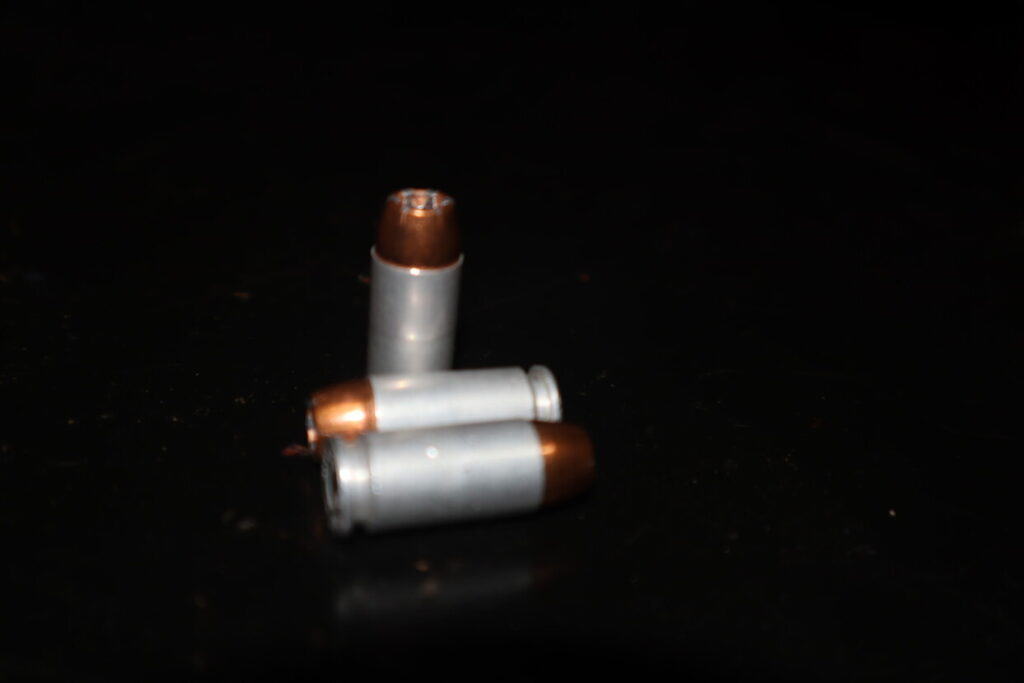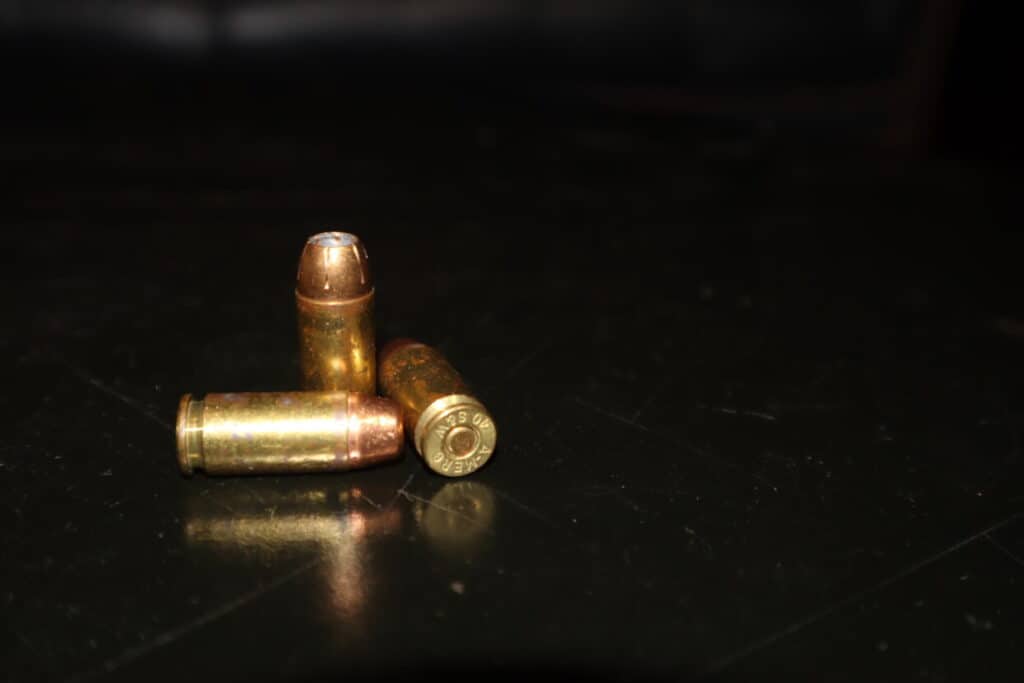The current ammunition shortage may have you keeping what you have longer than you would have when supply was better. You might also be eyeing opportunities that you would have passed up automatically in the past. How can you tell whether ammunition that has been in storage is still safe to use?
Factory loaded ammunition, properly stored, has a shelf life of many decades. Evaluate old ammunition for corrosion, damaged or misshapen cases, leakage, water exposure, and storage method. Factory loaded ammunition should be stored in original boxes in a dry place. Reloaded ammunition should be usable if you know the specifics of the load and how it was loaded. Use old reloads only if you trust the person who did the reloads.
Properly stored factory loaded ammunition from World War II can still be safe to use 80 years later. If you do your due diligence, you can find .30-06, .303, .30 carbine, .308, and perhaps 45ACP in a military surplus store or in someone’s grandfather’s stash. Evaluate your finds thoroughly and then enjoy a bonanza that will make your gun-toting friends jealous.
What Can Go Wrong With Old Ammunition
No matter the type of gun you shoot, each round of ammunition consists of a powder load, a primer, and a bullet, all wrapped in a casing.
The powder load is the biggest variable in ammunition and the hardest to determine. If your ammunition has no powder or too little powder (because the person loading it wasn’t paying attention) you have a squib load. Shooting this ammunition gets you an abnormally quiet shot.
The barrel is then obstructed, and if you try to shoot again with a live round you will create an explosion that has no outlet. Your gun may be damaged, or little pieces of the ammunition may blow out of the chamber in the form of shrapnel at any angle. You can injure your hand, your eye, or your neighbor.
Too much powder can cause a bigger explosion than the gun can handle, damaging the gun and injuring the user.
Powder that has gotten wet will produce a squib load or a dud. A dud has no ability to activate and will not shoot the gun, but the user will know to remove it because you get a click and no boom when you attempt to shoot.
A primer that has been exposed to oil or water will produce a dud that simply will not shoot.
A cartridge with a misshapen bullet will not look right and probably won’t even fit in the chamber.
A leaking cartridge will be obvious upon inspection. Attempting to use a leaking cartridge will foul the chamber.
Corrosion will weaken the brass and cause it to rupture in the gun, causing damage to the gun and injury to the shooter.
Proper Longterm Storage of Ammunition
Like anything made of metal, ammunition needs to stay dry. The best way to store ammunition is in the original factory packaging packed in an ammo can. Basements and garages can be humid, so indoor spaces with air conditioning are better for long term storage.
Storing your ammunition on the ground is not ideal because moisture can seep up from the floor and floods can damage the ammunition.
Hot or cold temperature in themselves are not a huge problem for ammunition storage, but wild temperature fluctuations cause condensation on brass as the cases sweat. Condensation leads to corrosion.
What Corrosion Looks Like on Old Ammunition


Corrosion on old ammunition is rust. Metal loses oxygen molecules to the water and other substances in the air and breaks down into its component elements.
If your ammunition has a blue-green or powdery coating, or is obviously degrading, don’t use it. If corrosion is moderate, you can give this ammunition to a reloader, who might be able to clean and reload the brass.
Damaged or Misshapen Cases on Old Ammunition
Inspect each case in your boxes of old ammunition. Any case that is irregular in shape or has a dimple on the bottom (indicating that it has been shot before) should be discarded. Give damaged cartridges to a knowledgeable reloader, who may be able to reload the bullet and the primer.
Leaking Cartridges in Old Ammunition
If your cartridges are leaking powder (or anything else!), discard them. An experienced reloader might be able to save the bullet, but the bullet might not be very accurate.
Factory Loaded vs Hand Reloads
The issue with old hand reloads is the mystery. You don’t know the skill level of the reloader and you probably don’t have a written record of the powder load used. Don’t use old reloads unless you know and trust the person who did the reloads.
Factory loaded ammunition has to meet industry standards and is likely to stand the test of time, especially if it is in its original packaging and has been stored properly. Go ahead and inspect every round before shooting just to be certain.
How to Identify Good Hand Reloading
Rimfire ammunition is unlikely to be reloaded. In rimfire ammunition, the rim of the case is the head of the primer, making it impractical to reuse the components.
Good hand reloading will have a consistent look. The reused cases will not be damaged from their first use. The primer will be seated evenly and securely. The bullet will be smooth and symmetrical and sitting straight. If you don’t have a written record of the powder charge used, you might want to pass on reloaded rounds.
Other Factors that Influence the Purchase of Old Ammunition
Price and availability are the main factors in a purchasing decision once the safety of the rounds has been determined. Ammunition prices have risen in response to the shortage, but don’t get caught in a bidding war. Compare the price of the ammunition you are considering to what you can find in the stores.
Remember that you can get by longer with a smaller supply if you are willing to employ other methods of training.
If you find a deal online that seems too good to be true, it probably is. In times of short supply, crooks abound. My husband purchased primers online only to find that the alleged seller had no idea his name was being used to advertise.
If you don’t know the veracity of an online seller, proceed with caution. It is much better to see the merchandise before you buy, especially if you are considering a purchase of old ammunition.
If you are offered free ammunition from someone who is clearing out space or disposing of the worldly goods of someone who has passed on, by all means accept the gift! Inspect each round thoroughly and then enjoy your newfound treasure.
Thanks for reading my blog. . Watch our Double Eagle Gunworks videos on YouTube.


